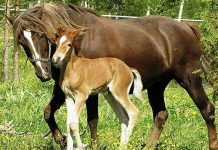Farmers can benefit from two environmental tax incentives in the recently published draft Taxation Laws Amendment Bill. The first applies to the disposal of carbon emission reductions, which will be exempt from income tax. The second provides for a deduction from income tax for energy saved.
According to a director at the law firm Deneys Reitz, Johan Troskie, the exemption is an encouragement from the South African Revenue Service (SARS) for South Africans to undertake Clean Development Mechanism (CDM) projects. “If milk farmers can earn carbon credits, implementing CDM projects and making their dairies energy efficient and “green”, it’s worth pursuing,” he said. “When carbon credits are sold farmers earn a substantial amount of money tax free, which helps cover the costs of the CDM project.”
The tax deduction for energy saved applies to everybody no matter the size of your business or household, according to North West University’s Prof LJ Grobler, a director of Energy Cybernetics, a company specialising in energy audits and optimisation projects.
“It will be especially worth it for commercial farmers with dairies or large irrigation schemes which use a lot of electricity, but that doesn’t mean smaller farmers shouldn’t save energy,” he said. “Each kilowatt hour of electricity you save, saves money.”
Prof Grobler said farmers or businesses wishing to qualify for the tax allowance should contact a measurement and verification agency to assess their energy use and set baselines. These professionals will help individuals compile a plan including the necessary measurement systems. “If you implement energy saving systems, you have to be able to prove the measurement of the savings,” he said.
The measurement and verification professional will assess the company or farming operations every three months. At the end of the year a report will be compiled detailing the savings for the National Energy Efficiency Agency (NEEA). Once the NEEA has approved the report, it will send an energy efficiency tax certificate to the company or farmer. This can be used to get an allowance on taxable income.
Prof Grobler said the cost of the energy audit will be determined individually. Most universities have measurement and verification teams. The Council of Measurement and Verification Professionals of South Africa (CMVPSA) will also activate the website www.cmvpsa.org.za listing registered professionals.
Meanwhile, Eskom has announced it will put on hold its rail, hydro power and wind projects, because of lack of funding. – Drieka Burger
Contact CMVPSA on 018 293 1499 or fax 086 680 3648.
Green tax benefit for farmers
Farmers can benefit from two environmental tax incentives in the recently published draft Taxation Laws Amendment Bill. The first applies to the disposal of carbon emission reductions, which will be exempt from income tax. The second provides for a deduction from income tax for energy saved.
| Read more |
|








